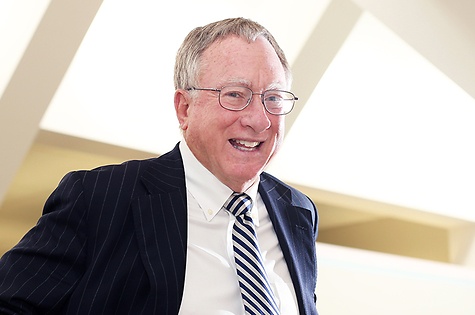Fairness Demands Return of Ill-Gotten Madoff Gains
Author: Attorney Richard Slavin
Are all Bernard Madoff investors victims? No. Some made money. However, it seems, some who are not victims now are trying to protect what were ill-gotten gains.
The television talk shows are replete with questions about Irving Picard, the trustee in the Bernard Madoff cases. Late in 2010, Picard announced a number of milestones in his efforts to recover funds for the estate and, subsequently, for those who lost billions from Madoff's fraud.
He announced a settlement with one estate for approximately $7.2 billion and also filed numerous actions against Madoff investors who allegedly profited from the fraud. These individuals and entities really didn't profit in the way that we normally understand profit, as Madoff did not really invest in anything at all. He simply paid prominent or early investors so that his later victims could be impressed with the returns.
It was a classic Ponzi scheme, requiring the fraudster to richly reward a few so others would be impressed and invest themselves. In a scheme that lasted as long as Bernie Madoff's, lots of people had to be paid to make it look successful to everyone who ever asked a question. No one ever achieved a real gain based on an investment. Any statement sent by Madoff's operation was based simply on a number Madoff and his helpers picked out of thin air. Wouldn't those who got these early payments look greedy when compared to those who got nothing?
In his efforts to recover as much money as he can, Picard is attempting to put everyone back at square one. He wants to give everyone back the original money they gave to Madoff. To achieve that goal, no one would be able to profit from Madoff's fraudulent scheme. Recently, attorneys for the investors have argued that Picard is asking for the wrong number. They argue that the way to calculate the amount which should be recovered is to use Madoff's bogus statements as the basis for recovery. In other words, they argue that Picard should ignore what was actually given to Madoff and instead use the inflated numbers Madoff concocted as reflecting the so-called "earnings."
It is certainly true that many victims believed those concocted numbers and believed they were worth millions more than the reality. However, wouldn't a calculation based on Madoff's accounting simply be continuation of the fraud?
It is easy to ask why these innocents should be penalized by having to pay back the money. They didn't defraud anyone.
The answer is basic fairness. If a bank makes an error on your statement and then catches it, you have to pay the money back. There is no difference here.
In recent weeks Madoff started talking from prison. He says that he really stole only about $20 billion and Picard should be able to recover most of that money. While it is tough to believe anything Madoff says, an analysis of the numbers suggests that he was correct in this instance.
That leaves about $45 billion of fake profit. Those who profited from transactions with nonexistent funds must now recognize the money wasn't really theirs and they should pay it back.
What about institutions like the feeder funds who funneled money to Madoff?
Clearly, lawyers for Madoff victims should attempt recovery of all those fees the institutions received as they profited from Madoff's schemes, content on the periphery with self-imposed blinders. Madoff says that the large banks had to know or should have known what he was doing.
Unlike federal securities laws, which do not recognize a private right of action for aiding and abetting, Connecticut investors can avail themselves of the "materially aiding" provision in the "buyers' remedies" section of the Connecticut Uniform Securities Act. Under this law, investors who have suffered losses simply have to prove that one who materially aided "knew or should have known" what was happening.
No one should have profited from Bernie Madoff's fraud. People who got back more money from Bernie than they gave him profited from fraud. Compare those individuals to the true victims who lost their life savings and got nothing back.
Rather than relying on Bernie Madoff's bogus statements to prove that victims should keep ill-gotten gains, the lawyers should go after the intermediaries who profited. Let's hope everyone gets back what they put into the Madoff scheme. But do it fairly. It is just not fair for some to gain and others to lose everything when every transaction was just a sham.
Attorney Richard Slavin is the managing partner of the Westport office of the law firm of Cohen and Wolf. He is the former director of the Connecticut Banking Department's Securities and Business Investments Division.
Practice Areas
Attorneys
- Principal

